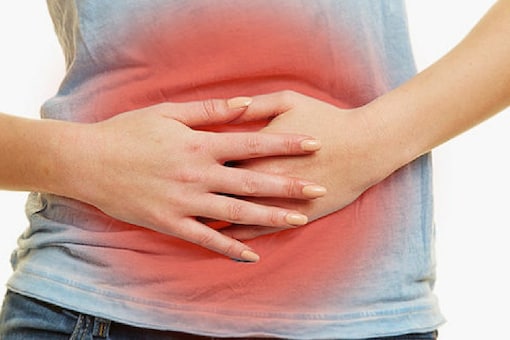
They can change how the gut feels pain, improve mood, and change the way the bowels work to pass stools. Irritable bowel syndrome (IBS) treatment may focus on alleviating annoying symptoms including abdominal discomfort and bloating, as well as improving stool function. Treatment for IBS usually includes some dietary and lifestyle changes, and training in stress management.
The IBS treatment program aims to relieve symptoms and improve quality of life. IBS treatment focuses on relieving symptoms and allowing you to live as normal as possible. Although there is no treatment for IBS, there are things you may do to alleviate symptoms and lower your risk of future bouts. Unlike other digestive diseases such as inflammatory bowel disease, IBS does not cause irreversible damage to the intestines.
Despite the lack of IBS diagnoses, a doctor may refer a patient for testing to ensure that the symptoms aren’t due to something else. If you experience these signs or symptoms, or if your IBS treatment isn’t working, you’ll almost certainly require more testing. A healthcare practitioner can diagnose you with IBS based on your symptoms.
If you are living with IBS, you may be worried about anything that might be causing your symptoms. Learning more about IBS and what causes symptoms is the first step to action. Any treatment for IBS relief starts with learning to understand the nature of the condition, including why and how the symptoms manifest. During diagnosis, your doctor will try to rule out conditions that cause symptoms similar to IBS.
Doctors employ a technique known as the Roman standard, which includes a list of specific symptoms and criteria that might assist establish whether or not someone has IBS-C. Researchers rank IBS based on the type of bowel problem you have. Antidepressants The drugs commonly used to treat depression are sometimes used to treat IBS. Studies have shown that tricyclic antidepressants and SSRIs can help relieve IBS.
Your doctor will develop a treatment plan for IBS according to your needs. The kind and intensity of your symptoms will determine the therapy plan. Finding and collaborating with a patient-centered healthcare practitioner who is knowledgeable with the concepts discussed here will aid in the treatment of chronic pain and other IBS symptoms. Opioids are not a treatment for IBS and may increase symptoms if you go to a pain management clinic that uses them.

Symptoms Share on Pinterest People with IBS may experience abdominal pain and cramps. These symptoms often recur, which can make you feel stressed or upset. Life in this situation can be difficult because it will come and go throughout your life.
People with IBS may feel frustrated and think that their symptoms are not being taken seriously. Most people have only mild symptoms that they can manage fairly well without treatment.
They can affect different sections of the body and resemble symptoms of other diseases and ailments. Some people believe that certain foods can “trigger” or trigger IBS-C symptoms. Certain foods, such as milk, chocolate, caffeinated drinks, carbonated foods, and fatty foods, can trigger IBS symptoms. Some researchers have suggested that IBS is an intrinsic response to stressors in life.
According to studies, patients with IBS may have an excess of bacteria in their gastrointestinal tract, which can exacerbate symptoms. People with IBS often complain of stomach pain, diarrhea, constipation, and bloating, but they don’t actually have any identifiable stomach, colon, or small intestine ailments, says Kimberly Tosh, M.D., gastroenterologist at Henry Ford Health System.
There are also “warning symptoms”, which suggest that a person’s symptoms may be caused by something other than IBS-C. If you have IBS, you may have noticed that certain things are causing your symptoms.
If you have IBS, you can prevent worsening of your symptoms by avoiding triggers. If you have IBS, which seems to be related to stress, there are some adjustments you can make. When you have irritable bowel syndrome (IBS), which is characterized by frequent bouts of diarrhea (IBS-D), constipation (IBS-C), or mixed symptoms (IBS-M), you can try something to relieve it.
It’s critical for people who have alternating diarrhoea and constipation to make sure their medicine doesn’t make things worse. Similarly, medications to relieve constipation can also cause diarrhea. Medications for constipation or diarrhea can also be used for medications for constipation or diarrhea, depending on which of these problems the patient encounters first. They have not been approved for the treatment of IBS in Germany, so they should only be used as directed.
Antidepressants can help some people cope with pain and depression. Be careful with laxatives: Over-the-counter medications can improve or worsen IBS symptoms, depending on how you use them. Peppermint oil or Chinese herbal formulae like STW5 supplementation have been shown to help with IBS-C symptoms.
Certain probiotics have been demonstrated in recent research to help with IBS symptoms such stomach pain, bloating, and diarrhoea. Some patients with IBS have abnormal intestinal flora, so probiotics containing these bacteria (such as in yogurt and drinks) are considered helpful. ACG recommends that gut health powder or foods containing probiotics or bacteria that are beneficial to the digestive system can help relieve some of the symptoms of IBS, such as bloating and flatulence. Antibiotics can also affect your intestinal flora, which can sometimes make your IBS symptoms worse.
These gut-targeting drugs act on several symptoms of IBS, including pain, diarrhea, and constipation. In IBS, certain gut signals are perceived in certain areas of the brain as pain.
It can help change the way the unconscious responds to physical symptoms. Techniques such as hypnosis, meditation, and cognitive behavioral therapy (CBT) can help relieve symptoms and improve disease control. Acupuncture can help control anxiety, fibromyalgia, migraine and insomnia associated with IBS. If you have IBS-D, acupuncture can also help. A study published in Frontiers of Neuroscience in December 2020 found that acupuncture can improve the functional connections of the brain, thereby alleviating IBS-D symptoms and improving the quality of life of patients.
It works by blocking messages from the gut to the brain and may help relieve stomach pain and slow bowel movements to relieve diarrhea. It is approved for women with IBS with constipation and is usually prescribed only for women with severe symptoms who have not responded to other treatments. Research has shown that linaclotide can relieve symptoms of IBS associated with constipation. Certain medications designed to improve bowel function (see below) can also relieve symptoms of abdominal discomfort.
